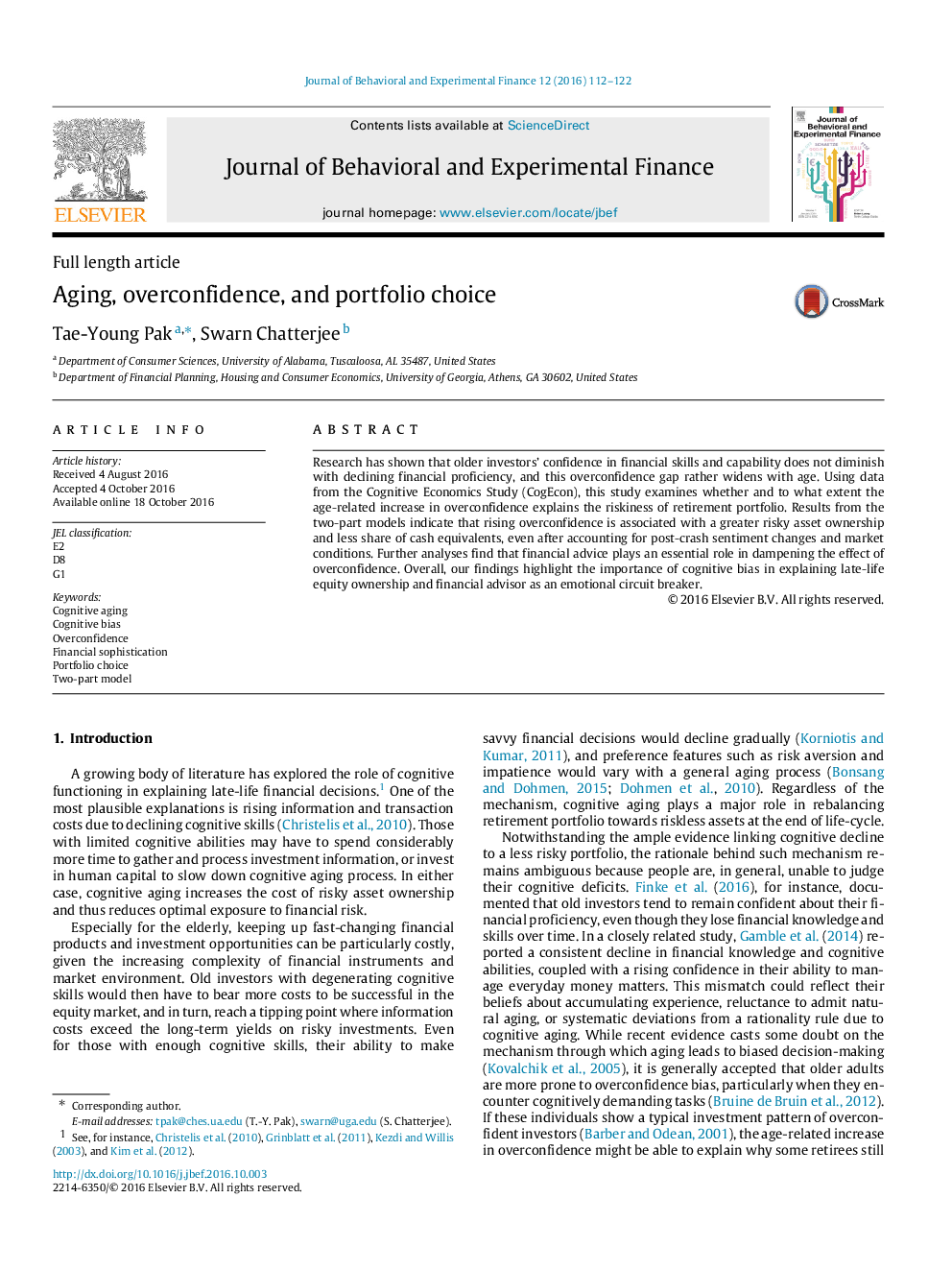| Article ID | Journal | Published Year | Pages | File Type |
|---|---|---|---|---|
| 5042464 | Journal of Behavioral and Experimental Finance | 2016 | 11 Pages |
Research has shown that older investors' confidence in financial skills and capability does not diminish with declining financial proficiency, and this overconfidence gap rather widens with age. Using data from the Cognitive Economics Study (CogEcon), this study examines whether and to what extent the age-related increase in overconfidence explains the riskiness of retirement portfolio. Results from the two-part models indicate that rising overconfidence is associated with a greater risky asset ownership and less share of cash equivalents, even after accounting for post-crash sentiment changes and market conditions. Further analyses find that financial advice plays an essential role in dampening the effect of overconfidence. Overall, our findings highlight the importance of cognitive bias in explaining late-life equity ownership and financial advisor as an emotional circuit breaker.
